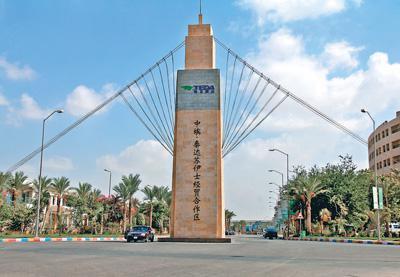From April, these new regulations will affect your life and mine!
The "Standards for Quality Evaluation of Nursery Institutions" will be implemented on April 1st.
The National Health and Wellness Commission issued the "Quality Evaluation Standard for Nursery Institutions", sinceApril 1, 2024Take effect. The "Standard" clarifies that nursery institutions should obtainBusiness license for providing nursery services, the business scope should be clearly marked "Nursery service"or"Care service for infants under 3 years old”。 There should be a living room to meet the needs of infant life games and appropriateAuxiliary room. Infant living room should be arranged in3 floors and below,But I always don’tArrange inbasementorsemi basement. The infant room is bright, with natural lighting, and the window opening area of the living room.Should not be less than 20% of the room area.. Living roomShould not face west., when inevitable, should be taken.Shading measures.
> > Read in detail:
More formal and safer! The quality evaluation standard of nursery institutions is coming.
Simplify the handling of credit complaints, and the new regulations will be implemented on April 15.
The People’s Bank of China revised and issued the Procedures for Handling Credit Complaints, sinceApril 15, 2024Take effect. The main contents of the "Regulations" include: First,simplifyComplaint request,optimizeHandling process,promoteHandle standardization. Among them, the requirementsBranches of China People’s BankUnified on its official websiteannounceComplaint channel,Simplify the requirements for identity verification of complainants., addMaterial review, complaint suspension and mergerAnd other processes, and standardized.Complaint application, complaint reply and termination notificationAnd other related document formats. The second is to unify credit complaints.Right of acceptanceandjurisdiction. The third is to strengthenSystem designGuide the complainant to correctly defend his rights.
> > Read in detail:
The People’s Bank of China revised and issued the Procedures for Handling Credit Complaints.
The new version of the Measures for the Administration of Consumer Finance Companies was officially implemented on April 18th.
The State Financial Supervision and Administration Bureau revised and promulgated the Measures for the Administration of Consumer Finance Companies, which consists of 10 chapters and 79 articles.April 18, 2024Officially implemented. The "Measures" clarify that access standards should be improved.Improve the assets and operating income of major investors.Indicator standards, andMinimum shareholding ratio requirement, strengthen the main investor’sShareholder responsibility;raisehaveConsumer finance business managementandShareholding ratio of investors with experience in risk controlTo promote its better professional and risk control role;raiseconsumer finance companyMinimum registered capitalRequirements, enhance the ability to resist risks.
> > Read in detail:
The State Financial Supervision and Administration Bureau revised and promulgated the Measures for the Administration of Consumer Finance Companies.
Related to the packaging of fresh edible agricultural products, this mandatory national standard will be implemented on April 1.
The General Administration of Market Supervision issued the mandatory national standard "Restricting over-packaging of commodities and requiring fresh edible agricultural products", sinceApril 1, 2024Implement it. The standard specifies that the main technical indicators include three aspects: first, aiming atDifferent categoriesandDifferent sales package weightsThe fresh edible agricultural products are set up10%—25%Upper limit of packaging void ratio. The second is regulation.Vegetables (including edible fungi)andeggno more thanThree-layer packaging,Fruit, livestock and poultry meat, aquatic productsno more than4-layer packaging. The third is clear.Packaging cost of fresh edible agricultural productsandretail priceRatio ofNo more than 20%, the sales price is inAbove 100 yuanofStrawberry, cherry, bayberry, loquat, livestock and poultry meat, aquatic products.andeggTighten up toNo more than 15%.
> > Read in detail:
Publish a mandatory national standard! About fresh edible agricultural products
"Ten Questions" of Compulsory National Standard "Restricting Overpackaging of Commodities and Requiring Fresh Edible Agricultural Products"
The newly revised national standard of Express Service will be implemented on April 1st.
The General Administration of Market Supervision recently released the newly revised national standard of Express Service, sinceApril 1, 2024Implement it. The Standard subdivides the user’s ordering and delivery methods, which is better.Adapt to the personalized needs of delivery users. Increase the requirements of intelligent services. Including intelligent security inspection system, intelligent letter box, intelligent express box, express unmanned vehicle, unmanned aerial vehicle and other intelligent receiving and delivering service terminals.Promote the application of new technologies in the industry.
> > Read in detail:
Five national standards for express delivery industry are released. Express packaging is greener and service is better.
The preferential stamp duty on offshore trade was piloted in Shanghai on April 1st.
The Ministry of Finance and the State Administration of Taxation jointly issued the Notice on Pilot Preferential Policies for Stamp Duty on Offshore Trade in China (Shanghai) Pilot Free Trade Zone and Lingang New Area. The "Notice" proposes that sinceFrom April 1, 2024 to March 31, 2025, sales contracts for offshore resale business of enterprises registered in China (Shanghai) Pilot Free Trade Zone and Lingang New Area,Exempt from stamp duty.
> > Read in detail:
The Ministry of Finance and the State Administration of Taxation pilot the preferential stamp duty policy for offshore trade in China (Shanghai) Pilot Free Trade Zone and Lingang New Area.
The Measures for the Supervision of Full Guaranteed Acquisition of Renewable Energy Electricity came into effect on April 1st.
The National Development and Reform Commission promulgated the Measures for the Supervision of Full Guaranteed Acquisition of Renewable Energy Electricity, sinceApril 1, 2024Take effect. The revised Measures clearly guarantee the scope of acquisition. Article 4 of the Measures proposes that the on-grid electricity consumption of renewable energy power generation projects includesGuaranteed purchasing powerandMarket transaction electricity. Guaranteed purchase of electricity refers to the renewable energy according to the stateConsumption guarantee mechanism and specific targetAnd other relevant regulations shall be made byRelevant members of electricity marketThe amount of electricity that undertakes the acquisition obligation. Market trading electricity refers to the electricity that forms the price through marketization, which is composed ofPower selling enterpriseandenergy consumerShare the acquisition responsibility.
> > Read in detail:
Responsible comrades of the National Energy Administration answered reporters’ questions on "Measures for the Supervision of Full Guaranteed Acquisition of Renewable Energy Electricity"
The newly revised Guide Service Specification will be implemented on April 1st.
The new version of the national standard "guide service specification" sinceApril 1, 2024Implement it. The main contents of the revision of the new standard include: standardizing related expressions, updating the requirements of tour guide service ability, optimizing the requirements of tour guide service content, increasing the requirements of outbound tour guides, optimizing the requirements of inbound tour guides, improving the handling requirements of emergencies and common problems, and increasing the evaluation content of tour guide service quality.
The Measures for the Administration of Central Reserve Cotton will come into force on April 1st.
The National Development and Reform Commission and the Ministry of Finance jointly issued the Measures for the Administration of Central Reserve Cotton, sinceApril 1, 2024Take effect. The "Measures" adhere to the goal orientation, mainly from the following aspects to strengthen the management of central reserve cotton: First,Macro-control of service. The second isClear responsibility procedure. The third isStrengthen storage management. The fourth isStrengthen supervision and inspection. Among them, clear the relevant departments of the central reserve cottonManagement situationandImplementation of rotation, storage and utilization planSupervision and inspection ofDuties and authorities, and shall be punished accordingly in violation of the provisions of the measures.
> > Read in detail:
The National Development and Reform Commission and the Ministry of Finance jointly issued the Measures for the Administration of Central Reserve Cotton.
The Measures for Administrative Punishment of Coal shall come into force on April 1st.
The National Development and Reform Commission issued the Measures for Administrative Punishment of Coal, sinceApril 1, 2024Take effect. The "Measures" emphasize that administrative punishment procedures are divided intosummary procedureandOrdinary procedure. rightMaking a decision on administrative punishment on the spot according to law, should beApply summary procedure; Other administrative penalties for coal shall be subject to ordinary procedures in accordance with the provisions of the Administrative Punishment Law of the People’s Republic of China. Violation of relevant laws, regulations and rules with conclusive facts and legal basis,Impose a fine of not more than 200 yuan on citizens, or impose an administrative penalty of not more than 3,000 yuan or a warning on legal persons or other organizations., yes.Make a decision on administrative punishment on the spot. Where laws, administrative regulations and departmental rules provide otherwise, such provisions shall prevail.
> > Read in detail:
The "Measures for Administrative Punishment of Coal" was announced! It will be implemented on April 1!


